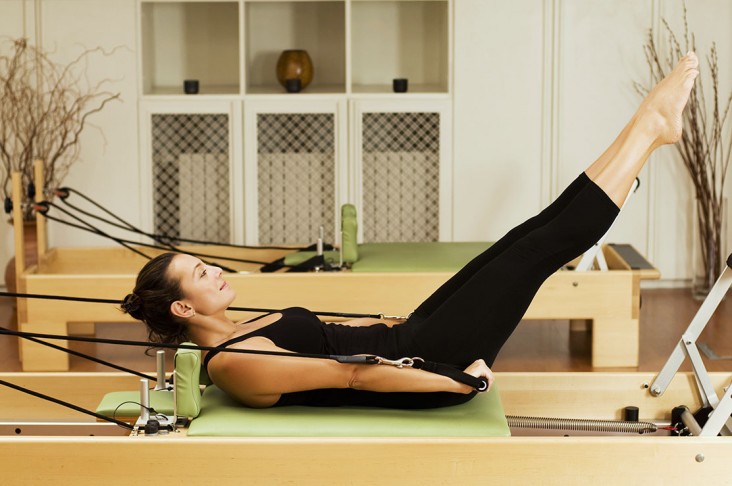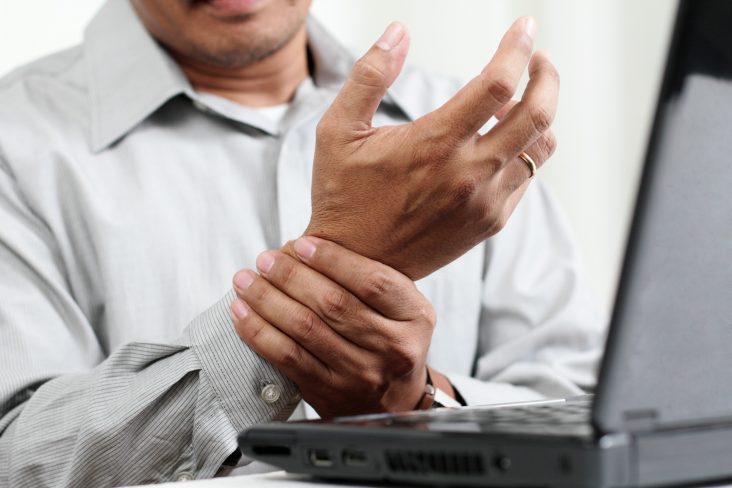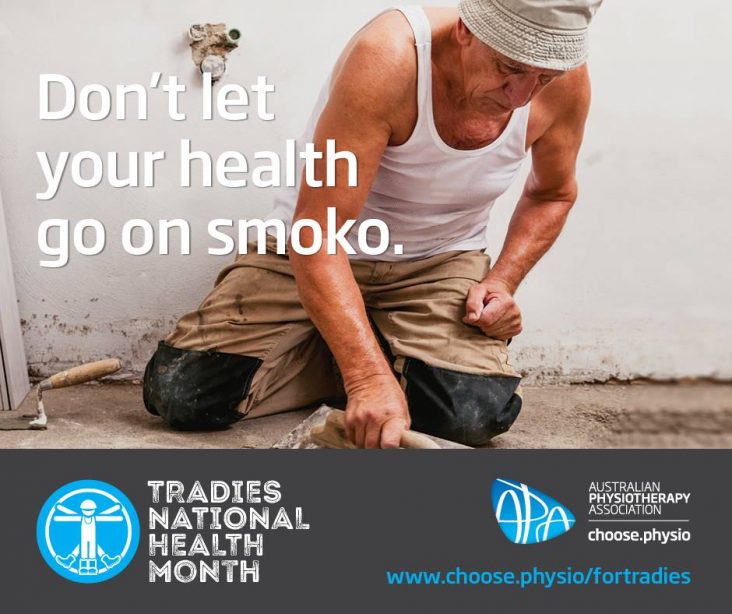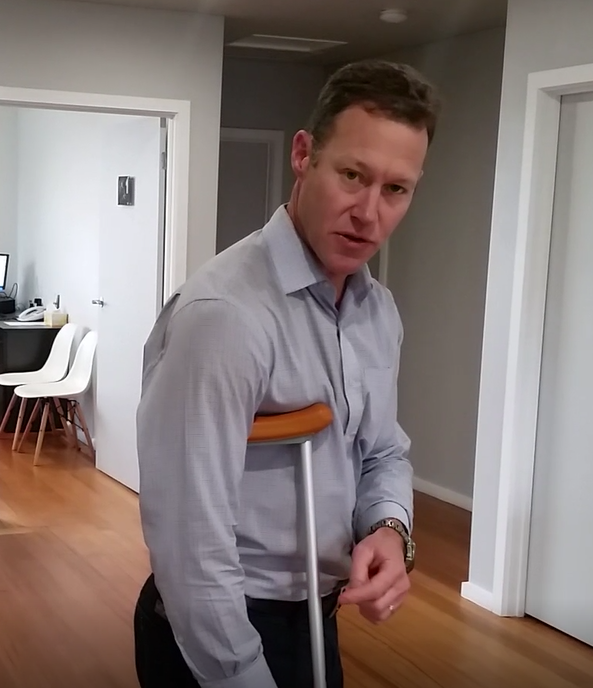Check out these fantastic Archies slides now in stock in all the popular colours – black, white, tan, taupe, peach.
Very popular for summer and selling fast, get in quick while stocks last!
Opening Hours : Mon-Thu: 8.30am - 7.00pm Fri: 8.30am - 1.00pm Sat: 9.00am - 12.00pm
Contact : Ph: 03 9707 4452 Email: reception@physiofit.clinic

Check out these fantastic Archies slides now in stock in all the popular colours – black, white, tan, taupe, peach.
Very popular for summer and selling fast, get in quick while stocks last!

We are very excited to welcome Chathu to our clinic! Chathu is talented and diverse physiotherapist and we are sure that her clients will appreciate her wide range of skills, knowledge, and dedication to achieve excellent outcomes for all her clients.
Chathu graduated in 2016 with her Bachelor of Physiotherapy. Since moving to Australia from Sri Lanka, Chathu has expanded her skills and experience through her work in geriatric and musculoskeletal physiotherapy, as well as managing group exercise programs and Pilates. Chathu is skilled in assessing and diagnosing a range of presentations in all age groups and provides effective hands-on treatment as well as exercise prescription and management techniques to prevent and minimise the impact of injury.
Chathu is dedicated to helping her patients achieve their health goals and get the best possible outcomes for every patient. She believes that understanding underlying anatomy, physiology and biomechanics of the musculoskeletal system is essential for providing effective treatment. Chathu is passionate about broadening her knowledge and skills and has recently completed the G.L.A.D. program and training with LaTrobe University, which will be particularly beneficial for those affected by arthritic conditions. She plans to continue studies in other areas of interest, as well as pursuing her Master of Physiotherapy in Musculoskeletal in the near future.
In her spare time, Chathu enjoys spending time with her young son and husband and enjoys living and working in the Casey area.

Last week we said a sad farewell to Nando, and as you can see he was also pretty upset to be leaving our PhysioFit team! We wish him all the very best for the future as he moves towards a new physiotherapy pathway, and know that his patients will miss him too!


Classes are back up and running on Tuesdays, Wednesdays and Fridays with Emma!
Our Clinical Exercise Classes are conducted by our physiotherapist in small groups of up to 4 clients and are ideal for the rehabilitation and management of injuries, particularly in the treatment of chronic back pain, as well as improving general strength and fitness.
Prior to beginning classes, the physiotherapist will perform a detailed individual assessment in order to prescribe a tailored exercise program to suit your individual needs and goals.
Your program may consist of exercises for strength, flexibility, balance, as well as some Pilates-based exercises for strengthening the core postural muscles used for balance and to support the spine (important in managing and preventing back pain). Some exercises may involve the use of specific equipment such as the Pilates Reformer (for spring-loaded resistance), as well as weights, resistance bands, yoga or stability ball, balance board or other specific equipment.
Please contact reception for availability or for further information.

Its that time of year to get your Archies ready for summer.
At $40.00 each or 2 for $70.00 they are walking out the door! Perfect for a birthday or X-mas pressie, and colours and sizes to suit the whole family.

We are very sad to report that Josie has closed down MyoPhysics Massage Therapy effective immediately. It has been a difficult last 18 months for her business with the pandemic, and due to this and other personal reasons she has made the difficult decision to close her business. We wish her all the very best for the future, she will be definitely be missed by everyone.

We are still OPEN during the lock down period from 16th July 2021 …with some restrictions and Covid-safe procedures of course to keep us all safe!
The Department of Health and Human Services (DHHS) in Victoria, have made it very clear that during stage 4 lock down restrictions, you should still seek the healthcare you need, which includes physiotherapy.
There has been some confusion in the general public about what is and isn’t allowed for physiotherapy services in Melbourne currently. The main points that you need to be aware of are:
![]() You DO NOT need a GP referral to see our physiotherapists
You DO NOT need a GP referral to see our physiotherapists
![]() You CAN travel outside the 5km radius to receive healthcare (use your appointment SMS as proof of service) You can also accompany someone for treatment if you are a parent, guardian or necessary support person.
You CAN travel outside the 5km radius to receive healthcare (use your appointment SMS as proof of service) You can also accompany someone for treatment if you are a parent, guardian or necessary support person.
![]() DHHS have encouraged everyone who needs healthcare to continue to receive healthcare. However you may only attend the clinic in person if the absence of care will mean that your condition and function may significantly change/deteriorate resulting in an escalation of care
DHHS have encouraged everyone who needs healthcare to continue to receive healthcare. However you may only attend the clinic in person if the absence of care will mean that your condition and function may significantly change/deteriorate resulting in an escalation of care
![]() Telehealth exists for all patients, no matter what condition you may be dealing with. Please do not underestimate your condition! Recently, we have had people attend our clinic with what they thought were minor issues, and they turned out to be serious injuries, some being stress fractures.
Telehealth exists for all patients, no matter what condition you may be dealing with. Please do not underestimate your condition! Recently, we have had people attend our clinic with what they thought were minor issues, and they turned out to be serious injuries, some being stress fractures.
If you are unsure whether or not you should attend, but you are in pain, then we would prefer to see you for a face-to-face consultation. This will allow you to gain a firm diagnosis and plan for your recovery. Where required, we’ll continue to see you in the clinic for face-to-face consultations. If we feel your condition doesn’t require further immediate care, then we can review you via telehealth to continue to provide you physiotherapy care. Otherwise, we will give you a plan to help you get through until you are able to attend again face-to-face, when the restrictions ease.
If you need us, we are here to help you! ![]()

The Department of Health and Human Services (DHHS) in Victoria, have made it very clear that during stage 4 lock down restrictions, you should still seek the healthcare you need, which includes physiotherapy.
There has been some confusion in the general public about what is and isn’t allowed allowed for physiotherapy services in Melbourne currently. The main points that you need to be aware of are:
According to the DHHS physiotherapy guidelines, if you are in pain, and worried that your condition may deteriorate or worsen, which may possibly result in you needing an escalation of care (e.g. a requirement for specialist input/review, an increase in care needs and/or alternate accommodation, avoiding a hospital admission or emergency department presentation) then you are definitely allowed to seek physiotherapy care.
Please don’t underestimate your condition! Recently, we have had people attend our clinic with what they thought were minor issues, and they turned out to be serious injuries, some being stress fractures.
If you are unsure whether or not you should attend, but you are in pain, then we would prefer to see you for a face-to-face consultation. This will allow you to gain a firm diagnosis and plan for your recovery. Where required, we’ll continue to see you in the clinic for face to face physiotherapy consultations.
If we feel your condition doesn’t require further immediate care, then we can review you via telehealth to continue to provide you physiotherapy care. Otherwise, we will give you a plan to help you get through until you are able to attend again face-to-face.
No, you do not need a GP referral to see a physiotherapist during lock down.
There was some initial confusion relating to this, but the DHHS have confirmed that, just like normal, you do not need a GP referral to see a physiotherapist during stage 4 lock down.
Yes, you can travel outside the 5km restriction zone to seek healthcare from your physiotherapist. You can use your appointment confirmation SMS message as proof that you have an appointment.
You can also accompany someone for essential medical treatment if you are a parent, guardian or necessary support person.
A reminder: DHHS have advised you to continue to seek the healthcare you require and not put off getting medical care.

| Update as at 21st July 2020…
PhysioFit Berwick is committed to maintaining our services during the current Coronavirus pandemic and we remain OPEN and ready to assist with all your healthcare needs. Our allied health services are also open, including Podiatry and Remedial Massage Therapy. For all physiotherapy and podiatry appointments please call the clinic on 9707 4452. For remedial massage please contact MyoPhysics Massage Therapy on 9052-4904 or visit www.myophysicsmassage.com.au (bookings can be made online). Whilst we remain open, our priority is also ensuring the safety of all our clinic staff and patients, and we are following the guidelines issued by the Australian Government Department of Health for healthcare environments. We would like to assure our patients that we continue to implement a high level of hygiene control, screening procedures, as well as strict social distancing rules. Further measures include: DO NOT ATTEND if you have been in contact with anyone who has been overseas in the last 14 days, or if you have been in contact with a possible or known case of Covid-19, or is you are experiencing any flu-like or respiratory symptoms. TELEHEALTH appointments are available for anybody who cannot attend the clinic in person. CLEANING: All equipment and treatment tables are cleaned before and after every patient, and extra precautions are being taken with regards to towels and linen. Contact points throughout the clinic are being regularly cleaned (i.e. door handles, benches, chairs, bathroom facilities). WAIT IN YOUR CAR for your appointment. Please call to let us know you have arrived and we will let you know when to come into the clinic. Upon Entering the Clinic: 1. ATTEND ALONE: Please attend alone unless you are a caregiver or parent of a child attending. If you have additional children with you, please notify reception prior to arrival. 2. WEAR A MASK: From Thursday 23nd July, masks will be mandatory in Metro Melbourne and the Mitchell Shire. ALL patients, staff and visitors are required to wear a mask while attending this clinic, with the exception of children under 12 years or with a medical certificate of exemption. 3. TEMPERATURE CHECK: Please go to reception for your temperature check. If it is over 37.4˚ you will be asked to return home and contact your GP for further advise. All staff will be temperature checked daily. 4. WASH YOUR HANDS with soap and warm water for at least 20 seconds. This is preferred to using sanitiser alone as it is more hygienic. Thank you for your cooperation and we hope that you and your family can stay safe and well during this difficult time. Kind Regards, The PhysioFit Team |

Have you been hanging out for a massage? Well wait no more!
MYOPHYSICS MASSAGE THERAPY is back up and running after a break, and with two additional therapists you are sure to find a time to suit. For more information or to book an online appointment please visit http://www.myophysicsmassage.com.au

From 30th March 2019, we now offer Telehealth services for those who are unable to attend our clinic in person for physiotherapy treatment.
Covid-19 pandemic has presented us with an unprecedented challenge. Australians are being asked to take measures that we’ve never had to before, and you may be wondering how this affects your physiotherapy treatment.
We at PhysioFit Berwick, continue to offer quality care for our patients and there are many things we are doing as professionals to minimise risk of exposure through rigorous hygiene practices and patient screening to keep you and our staff safe.
Subject to our screening processes you are still welcome to come in for your treatment. However, if you are unable to attend your treatment in person you may like to consult with us via Telehealth.
Telehealth uses digital technology that’s readily available on your computer, tablet or phone, to receive treatment from our physio. It is safe and effective, and our physios are trained to delivery telehealth consultations.
How to book?
Please just call and speak to our friendly reception staff by phoning 9707 4452. Alternatively you may send an email request to reception@physiofit.clinic and we will contact you to schedule your appointment.
How does the appointment work?
In preparation for your appointment, you will need to have access to a device which runs a camera; preferably your computer, laptop or tablet (mobile phone is possible but not recommended). It would be beneficial to setup your device where you have some room behind you to allow movement and to enable the physio a view of your whole body (about 3-4m2 if possible).
At the time of your appointment, the physiotherapist will send you an email invitation with easy to follow instructions of how to connect via Coviu, our software provider.
How do I pay?
We can accept payment by Stripe (secure online payment system), or by direct debit or credit card phone payments.
THIRD PARTY BILLING INFORMATION:
The Australian Physiotherapy Association (APA) has been working hard behind the scenes to advocate for funded telehealth services with third-party billpayers, and we are pleased to announce the following bill-payers which will fund Telehealth services…
WorkCover: Yes, fully covered telehealth services.
TAC: Yes, fully covered telehealth services.
Medicare: Yes, fully covered with an EPC plan from the GP for chronic disease management, available to use from 1/4/2020 to 30/9/2020.
DVA (Veteran’s Affairs): Yes, fully covered and available to use from 1/4/2020 to 30/9/2020.
Private Health Insurance: Yes, available from 14th April 2020 until 30/9/2020. Health fund members should check with their health fund to see if they will cover tele-physiotherapy consultations as some funds may impose additional conditions.
During this period, HICAPS has enabled key entry to process benefits over the phone (i.e. processing with manual entering of membership number). The balance of the account can also be paid over the phone with credit card, by direct debit or with Stripe (see above).

The festive season is over, and with the end of the holidays many Australians will be returning to sitting at a desk for extended periods of time, which research has shown to have a serious impact on well-being. The Australian Physiotherapy Association (APA) is urging employees and employers alike to ensure their health – and the health of their staff – isn’t compromised in the post-Christmas return to the office.
The feeling of waking up without an alarm clock and the taste of that glorious Christmas feast may feel like distant memories this week, as the holidays inevitably draw to a close. There’s no doubt about it, coming back to the office from extended time off can be a struggle. Upon returning to work, it’s important – for both physical and mental wellbeing – not to revert to long, uninterrupted periods of sitting.
Besides potentially causing musculoskeletal problems such as neck, shoulder and lower back pain, sedentary behaviour has also been associated with an increased risk of developing Type 2 diabetes, heart disease, obesity and certain types of cancers.
Dave Hall, Chair of the APA Occupational Health group, says ‘Building movement into your working day can be a big step towards increased health and productivity’. Some of Dave’s tips for maintaining movement in the workplace include:
Our Physiotherapists at PhysioFit are highly qualified in prescribing exercise programs for all sorts of scenarios, including injury prevention, chronic disease and pain management, as well as to aid general fitness and well-being.

Do your feet a favour this summer and get into some Archies (arch support thongs) this summer!
$40 each or buy two pairs for $70.
Colours and sizes to suit the whole family, including newly released Pink, Brown and Taupe.
Also in Mint, Coral, White, Sky Blue, Navy and Black in sizes 5 – 14.





Carpal tunnel syndrome (CTS) is an ailment of the wrists, fingers and hands. The condition is often characterized by pain, stiffness, numbness, tingling sensations, trembling, throbbing and / or abnormal weakness in the wrist, fingers and thumb. In severe cases of CTS, the patient may find it challenging to grasp and hold objects because the thumb is not functioning properly. Pain can sometimes go beyond the hand, extending into the arm and possibly even into the shoulder.
Carpal tunnel syndrome was given this name because of its association with the carpal tunnel passageway that runs through the wrist and into the hand. There is a prominent nerve, known as the median nerve, which also shares this passageway into the hand. In connection with some other components of the nervous system, the median nerve is responsible for providing feelings and sensations in parts of some of the fingers.
The carpal tunnel also plays host to multiple tendons that pass through it. Swollen tendons can compress the median nerve, which is often the cause of the pain and other unpleasant symptoms associated with CTS.
There are several situations that could put you at an increased risk of experiencing CTS:
Sometimes carpal tunnel syndrome happens when none of these circumstances are evident.
Pregnancy can create numerous uncomfortable changes in a woman’s body. During this time, the body ramps up production of blood and other fluids to ensure that the developing baby’s needs are met. Hormonal changes can also contribute to fluid retention in the body. Excess fluid can sometimes collect in the hands and other body parts including the face, ankles, legs and feet, resulting in swelling known as oedema. This swelling is particularly common in the third trimester of pregnancy, although it can happen at virtually any time during a pregnancy.
When this build-up of fluid adversely affects the tissues in your wrists, it can result in carpal tunnel syndrome.
Often, carpal tunnel syndrome will resolve on its own after the birth of the baby. However, it doesn’t always vanish straight away after childbirth. There are instances when it can linger, or sometimes even develop for the first time, after the birth of a baby. If that is your situation, we recommend mentioning it to your GP or midwife – or giving us a call to discuss the matter.
Workers in some occupations are prone to developing CTS. This condition commonly affects typists, mechanics, chefs, athletes, carpenters and musicians. If you find yourself spending a lot of time typing or doing similar repeated motions, there are steps you can take to reduce the risk of carpal tunnel syndrome:
Hand therapy is one of our specialties, and it can be especially beneficial for people who suffer from carpal tunnel syndrome. We can help you customise a treatment programme that might include hand splints, mobilisations, exercises, stretches and remedial massages. Steroid injections and surgery are also options, but they may not be necessary if the less invasive interventions are able to provide relief. We’re able to help many of our patients recover from carpal tunnel syndrome without a need for surgery.
Perhaps you have a chronic condition or disease such as arthritis or diabetes that is causing or contributing to your carpal tunnel syndrome. If so, it is possible that you might be qualified to claim Medicare benefits to cover up to 5 physiotherapy sessions in certain extremely specific circumstances. The Australian government does allow a limited number of allied health services to be covered by Medicare for patients who suffer from chronic conditions. If you’re hoping to qualify for Medicare benefits under this scheme, you’ll need your GP to refer you to a physiotherapist for treatment that is both medically necessary and directly relevant to your chronic condition.
Most physiotherapy treatments are not eligible for cover by the government subsidised Medicare programme. However, private health insurance does often cover visits to your physiotherapist for medically necessary therapies relating to carpal tunnel syndrome.
There are two types of health insurance policies that are likely to include cover for physiotherapy services: extras cover policies, and customised policies that bundle together both extras cover and hospital cover.
Extras cover policies offer varying levels of cover, depending on which type of policy you’re signed up for. The top-level extras cover policies typically cover multiple types of physiotherapy services. Policies offering lesser levels of cover might or might not include physiotherapy, so it’s important to check the details of your policy before submitting a claim for benefits.
We hope you now have a clearer understanding of what carpal tunnel syndrome is, what causes it and how physiotherapy can help you heal from it. Please do get in touch with us if CTS is a condition you’re currently suffering from. It is also advisable to contact us if you suspect you have CTS, and you’d like to have a professional evaluation. We can help you confirm whether carpal tunnel syndrome is, indeed, your issue. If it is, we can also help you customise the gentlest possible recovery programme that will be effective given your current condition.

Being a Tradie, your body is the most important tool yo own…if it is damaged through injury or illness you may not be able to work to the best of your ability…and that’s where Physiotherapists can help!
Physiotherapists are highly trained and experienced in helping with all sorts of problems, including soft tissue damage, joint or muscle pain….but did you know that physiotherapists can also help you with chronic health conditions such as heart disease and diabetes, as well as problems with your plumbing!
So, stay fit and well on the job, and make your health and safety a priority and see how a physiotherapist can help you!
Visit https://choose.physio/

We are very proud to be a members first provider for BUPA, NIB and Medibank. We also endeavour to charge the lowest possible fees to all clients, regardless of whether you have private health insurance or not!
Pain Vs Posture – an article written by Dulan Kodikara, one of our Sports Physiotherapists…

Congratulations to Lisa V. on winning the Prescription Pillow, kindly donated by Health Innovations Australia… For more information on these fabulous products by Health Innovations, please click here https://healthinnovations.net.au/
Congratulations also to Tayla B. for winning a pair of Archies Arch Suport Thongs….just in time for summer too! These thongs are fabulous for the whole family and are for sale here at the clinic for only $35 (or 2 for $60)…for more information visit https://archiesfootwear.com.au/
Our final lucky winner, Xavier will hopefully get some benefit with one of our Spikey Massage Balls which are fantastic for releasing muscle tension.
Thank you to all our new and existing clients for supporting our clinic and we look forward to helping you in the future 🙂

Remember, when using either a cane or crutches, make you home as user-friendly as possible to prevent any slips or falls…
Some basic rules of use are…
CRUTCHES:
CANE or SINGLE CRUTCH: